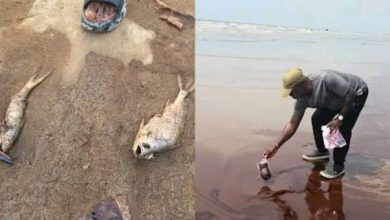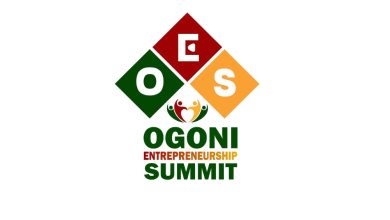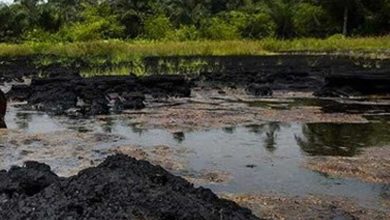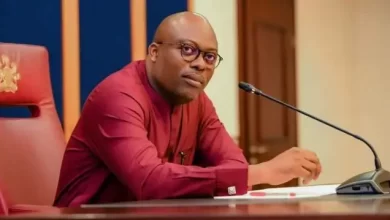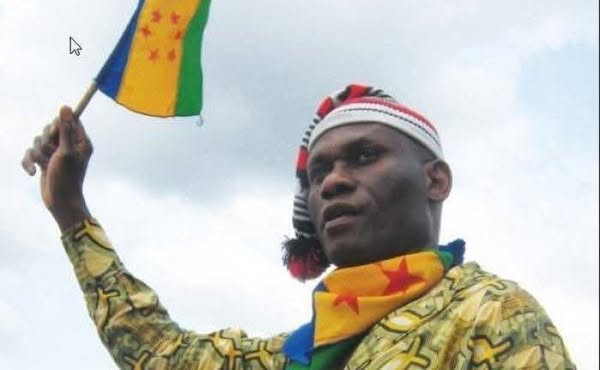
Full text of open letter of Dr. Goodluck Diigbo to President Bola Ahmed Tinubu.
“Mr. President, I urge caution. You cannot honor the dead while ignoring the living. You cannot call for unity while plotting to divide and conquer. You cannot speak of shared prosperity while signaling the militarization of petroleum operations in Ogoniland” – Dr. Goodluck Diigbo (President, Ogoni Central Indigenous Authority (OCIA)
Dr. Goodluck Diigbo
President
Ogoni Central Indigenous Authority (OCIA)
Office of the President
Bori, Ogoni
September 24, 2025
His Excellency, President Bola Ahmed Tinubu
President of the Federal Republic of Nigeria
Presidential Villa
Abuja, Nigeria
Subject: Posthumous Honors and Petroleum Resumption in Ogoniland — An Offer for Building Genuine Peace and Security
Your Excellency,
This is a plea for a state of peaceful coexistence where values and differences are respected and balanced. Our tribal rhythms differ, but the nation state may be one — this plea is for harmony in motion.
I write to you with deep respect and a solemn sense of duty as President of the Ogoni Central Indigenous Authority (OCIA), representing the enduring voice and aspirations of the Ogoni people.
I acknowledge your repeated good intentions, and welcome your administration’s posthumous recognition of Albert Badey, Edward Kobani, Theophilus Orage, and Samuel Orage—the Ogoni Four Chiefs—as a long-overdue gesture of respect for lives lost in a moment of profound tragedy. Their brutal murders in 1994, followed by the state-sanctioned execution of the Ogoni Nine, remain indelible scars on the conscience of our nation. These events did not merely disrupt petroleum operations—they exposed the moral bankruptcy of a system that valued oil above human life.
Let it be known: the path to peace in Ogoniland cannot be paved with crude oil.
Your recent call to “transform the wealth beneath Ogoni soil into a blessing” is rhetorically elegant, but dangerously naïve. It is the antithesis of peace and security to threaten the Ogoni people with the resumption of petroleum operations under the guise of reconciliation. The petroleum conflict in Ogoniland was never about access—it was about abuse. It was the worst pollution, as confirmed by the UNEP Report, the denial of self-determination, and the economic injustice that ignited resistance and led to senseless massacre by the Nigerian military, including more than 3,000 unnamed heroes.
Ogoni has lost over 33,000 innocent lives to oil-centered conflicts in Nigeria. Do you know any of the other names? They were humans, and they belonged to families.
There is no consensus on the resumption of petroleum operations. The UNEP report was never jointly reviewed. No reasonable government white paper followed. It was allowed to expire without meaningful implementation. The so-called cleanup is a farce—an environmental pantomime that insults the intelligence and resilience of the Ogoni people. To proceed without truth, transparency, and trust is to repeat the sins of the past.
As an indigenous people, the Ogoni consensus is our rights under international law. The United Nations Declaration on the Rights of Indigenous Peoples (UNDRIP), adopted by the UN General Assembly in 2007 with overwhelming global support, is the most comprehensive international instrument affirming the rights of indigenous peoples. It establishes minimum standards for dignity, survival, and self-determination:
• Article 3 affirms our right to freely determine our political status and pursue our economic, social, and cultural development.
• Article 4 guarantees our right to autonomy and self-government in matters relating to our internal and local affairs.
• Article 5 protects our right to maintain and strengthen our distinct political, legal, economic, social, and cultural institutions, while retaining full participation in the life of the Nigerian State, if we so choose.
These rights are not aspirational—they are binding moral and legal standards. UNDRIP is not merely a declaration; it is a reflection of the United Nations’ commitment to peace, justice, and cooperation between States and indigenous peoples. Countries that genuinely seek peace with their indigenous populations have either incorporated UNDRIP into their constitutions or actively implemented its provisions through national law and policy. Nigeria cannot continue to seek bloodshed and stand apart from this global movement and claim reconciliation while ignoring the very instruments that give it meaning.
Furthermore, as a sovereign member of the United Nations, Nigeria is bound by the principles enshrined in the UN Charter—including the promotion of peace, the respect for human rights, and the advancement of social progress and better standards of life in larger freedom. The Charter obliges all member states to uphold the dignity and equality of peoples and to truthfully settle disputes by peaceful means, not by coercion or militarization. Ogoni, as a distinct indigenous nation, is entitled to these protections for its citizens.
Any attempt to resume petroleum operations without our free, prior, and informed consent violates the spirit and letter of UNDRIP, the UN Charter, the African Charter, and undermines the legitimacy of any reconciliation effort.
Mr. President, I urge caution. You cannot honor the dead while ignoring the living. You cannot call for unity while plotting to divide and conquer. You cannot speak of shared prosperity while signaling the militarization of petroleum operations in Ogoniland.
Be wary. The Ogoni people are not a dead asset. We are a living conscience. We are not obstacles to development—we are its moral compass. Any attempt to underestimate our resolve will be met not with violence, but with unwavering resistance rooted in justice and sacrifice.
A Path Forward: Toward a Just and Lawful Resolution
If your administration is sincere in its pursuit of peace, it must embrace a new framework—one rooted in international law, indigenous sovereignty, and participatory justice. I respectfully propose the following:
1. Establish a Truth and Reparations Tribunal
Modeled after global precedents, this tribunal should investigate historical abuses in Ogoniland, recognize the more than 33,000 unnamed heroes, and offer reparations to affected families and communities.
2. Initiate a Tripartite Indigenous-State Commission
Co-chaired by OCIA, the government, and Shell Oil representatives; this commission must be empowered to review the UNEP report, assess environmental remediation, and oversee all future environmental remediation in Ogoniland.
3. Suspend All Petroleum Activities Pending Consent
No oil resumption should occur until a transparent, community-led referendum is conducted, and free, prior, and informed consent is obtained from the Ogoni people.
4. Launch a Sustainable Development Compact
A binding agreement between OCIA and the Nigerian government to invest in education, healthcare, clean energy, and infrastructure—prioritizing human development over resource extraction.
5. Honor Nigeria’s Obligations Under the UN Charter
Nigeria must act in good faith, promote peaceful coexistence, and avoid policies that incite conflict or suppress indigenous voices. These are not demands—they are the minimum conditions for peace.
I stand today, not as a lone voice, but as the continuation of Ken Saro-Wiwa’s vision—a vision of environmental dignity, indigenous autonomy, economic justice, and constructiveengagement, and a future where no one is sacrificed for oil. Let this moment be a reckoning, not a rehearsal.
With all due respect, Mr. President, I implore you to rethink the path forward. Reconciliation without justice is a hollow ritual. And national development without consent is a colonial echo.
Respectfully,
Dr. Goodluck Diigbo
President
Ogoni Central Indigenous Authority (OCIA).

